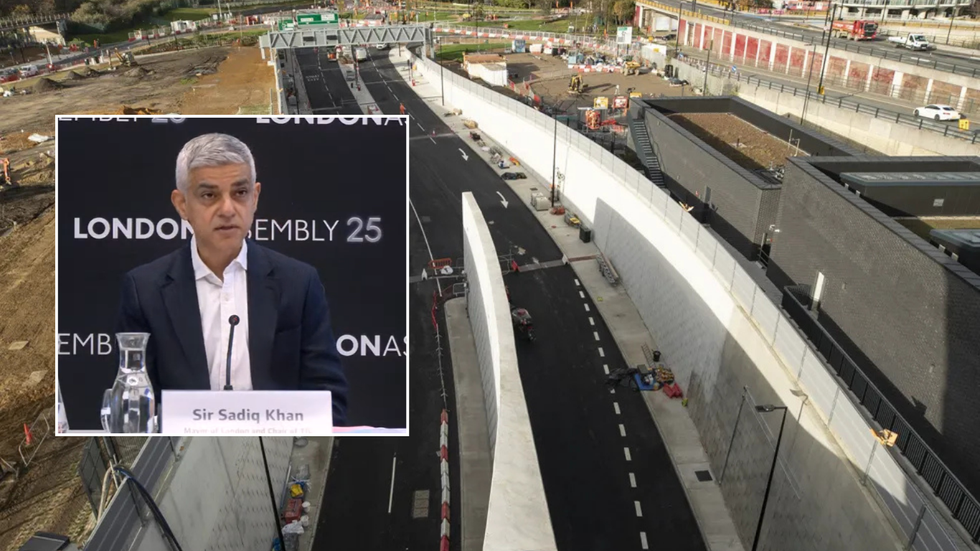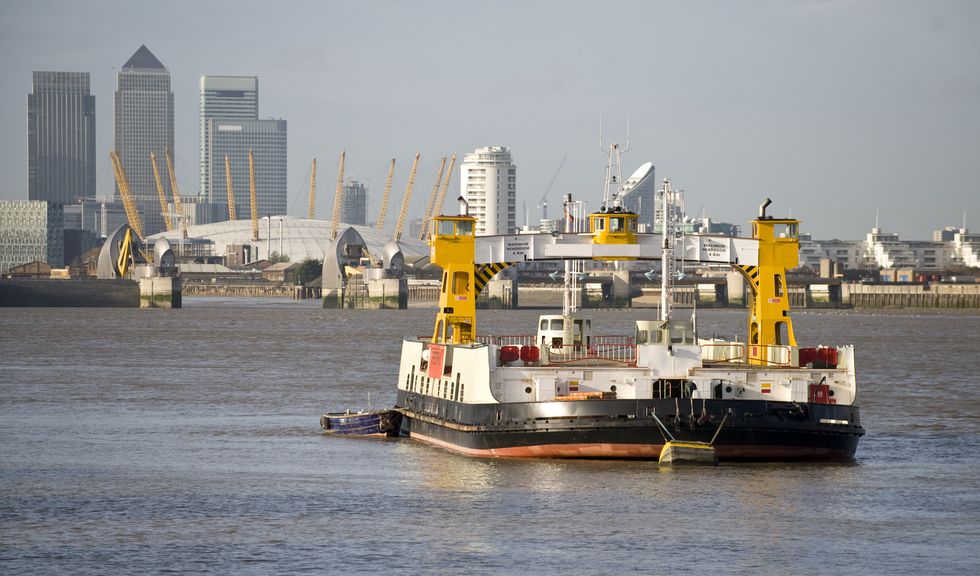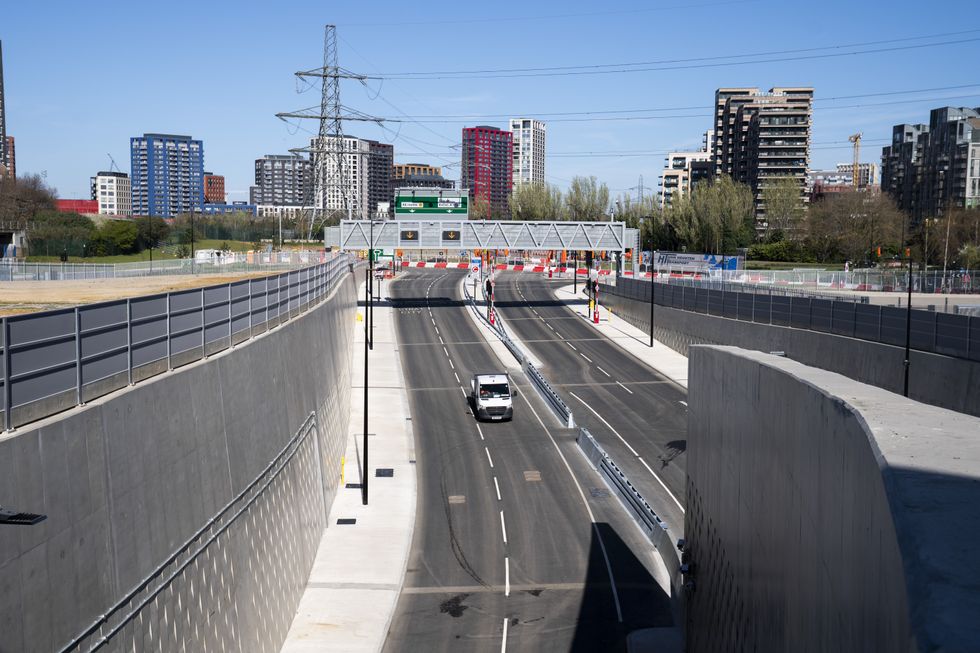Motorists boycott Sadiq Khan’s new toll route opting for free crossing instead of £4 daily charge

The Woolwich Ferry has experienced a 58 per cent increase in usage on weekends since the Silvertown tunnel opened
Don't Miss
Most Read
Thousands of motorists have been found to be boycotting the new Silvertown Tunnel by refusing to pay the controversial charges.
It comes after data released by Transport for London today revealed the scale of the problem, with roughly 13 per cent of drivers deliberately not paying the crossing fee.
The report found drivers have instead been queuing for the Woolwich Ferry, which has experienced a 36 per cent surge in usage since the tunnel opened, with 1,278 additional vehicles using it on the weekdays.
But weekend usage, however, has jumped even more dramatically, with 1,538 extra vehicles daily, marking a shocking 58 per cent rise.
Do you have a story you'd like to share? Get in touch by emailing motoring@gbnews.uk

Roughly 13 per cent of drivers have failed to pay for the Silvertown tunnel
|TFL/LONDON ASSEMBLY
Despite the new tunnel offering faster journey times and reduced congestion, many drivers appear unwilling to pay the charges that apply between 6am and 10pm daily.
The boycott has forced TfL to deploy additional staff to manage traffic during peak periods at ferry terminals, with reports detailing that extra staff have been brought in to help manage traffic in peak periods in the short term.
The Silvertown and Blackwall Tunnels three-month monitoring report stated: "We are reviewing how to manage potential longer-term increases, for example, with improved real-time information. We expect travel patterns to settle, but will continue to closely monitor the situation."
The scale of the resistance was outlined in TfL's compliance figures, which showed that approximately 87 per cent of motorists are either paying the charge or benefiting from exemptions. This means roughly 13 per cent of drivers are refusing to pay, resulting in Penalty Charge Notices.

The ferry has seen a 58 per cent increase in car usage across weekends since the Silvertown tunnel opened
|GETTY
Despite representing just three per cent of all east London cross-river traffic, the ferry's limited capacity means even modest increases create significant operational pressures.
TfL acknowledged the ferry service is struggling to cope with demand, with less than one per cent of cyclists being turned away from the cycle shuttle service due to capacity constraints. The situation has prompted TfL to review how the ferry crossing is managed.
The Silvertown tunnel charges range from £1.50 for motorcycles to £4 for cars during peak hours. But the fee increases heavily for Heavy Goods Vehicles during peak hours, which are charged £10, with drivers who haven't registered for Auto Pay facing higher rates at all times.
More than three million vehicles have signed up for the automatic payment system, up from 2.65 million in January when pre-registration opened.
LATEST DEVELOPMENTS:
Approximately 3,500 residents have registered for the East London low-income discount, which provides a 50 per cent reduction for those receiving certain benefits.
Over 1,000 vehicles are registered for the business discount scheme, offering eligible small businesses, sole traders and charities in Greenwich, Newham and Tower Hamlets a £1 reduction on standard off-peak charges.
The Mayor of London, Sadiq Khan, said: "The new data TfL has published today clearly demonstrates the impact the new Silvertown Tunnel is having. It’s a big win for London.
"Since it opened in April, we have seen congestion significantly reduced at the Blackwall Tunnel, ensuring more Londoners get to their destination on time. The discounts and concessions we have put in place have also helped to encourage public transport uptake, boosting the numbers of journeys being made on the three cross-river zero emission bus routes by 160 per cent."
 The Silvertown Tunnel officially opened in April after just under five years of construction | PA
The Silvertown Tunnel officially opened in April after just under five years of construction | PAAlex Williams, Chief Customer and Strategy Officer at TfL, added: "We are fully committed to monitoring the impact of the tunnels, including how it impacts other river crossings and traffic along major and local roads in London."
The ferry continues to operate its regular service despite the increased pressure, though localised impacts are being felt at the terminals.
The broader impact of the boycott comes as TfL reports the tunnel has successfully reduced congestion on the A102 approach road, with journey times falling by 70 per cent during morning peak hours.
Average speeds have increased from 9mph to 30mph since April, while unplanned Blackwall Tunnel closures have dropped by 39 per cent.











